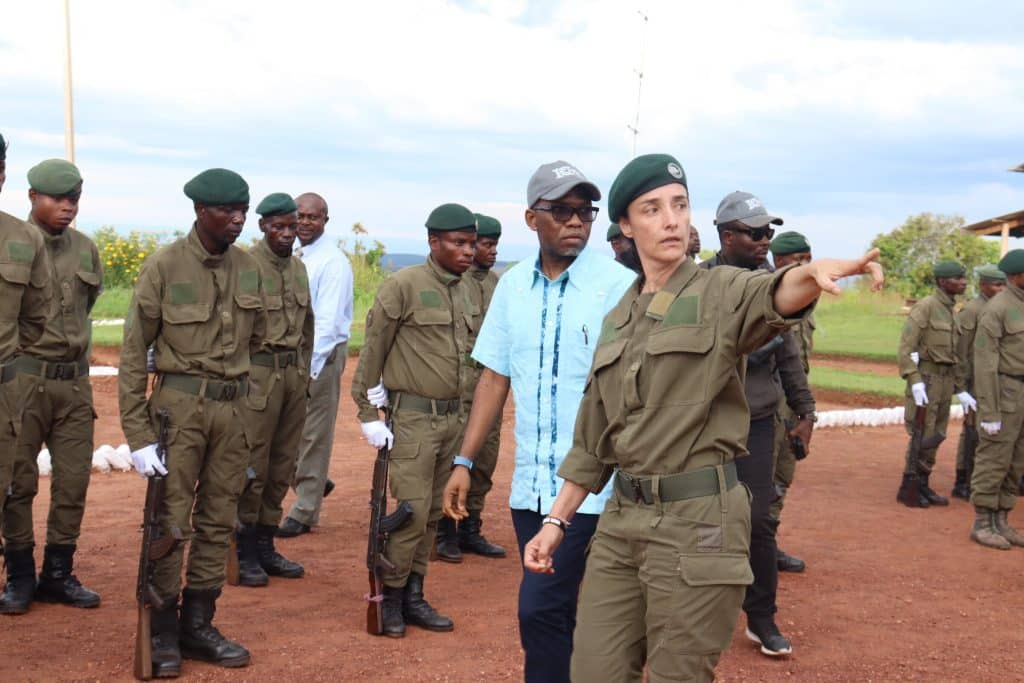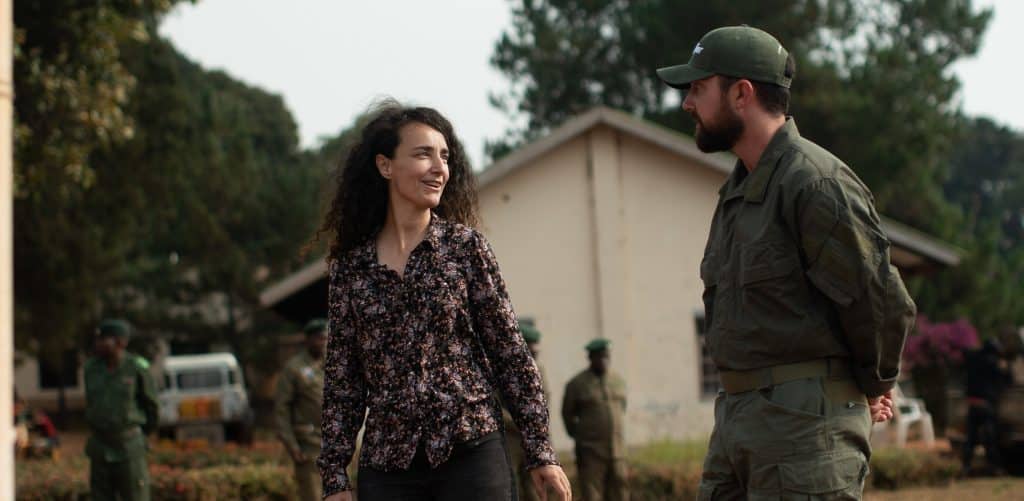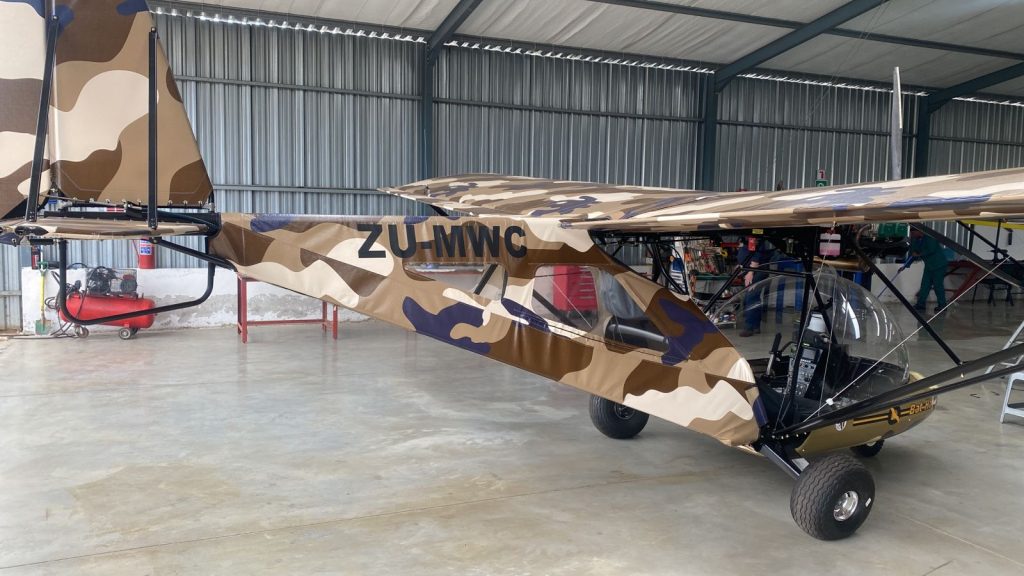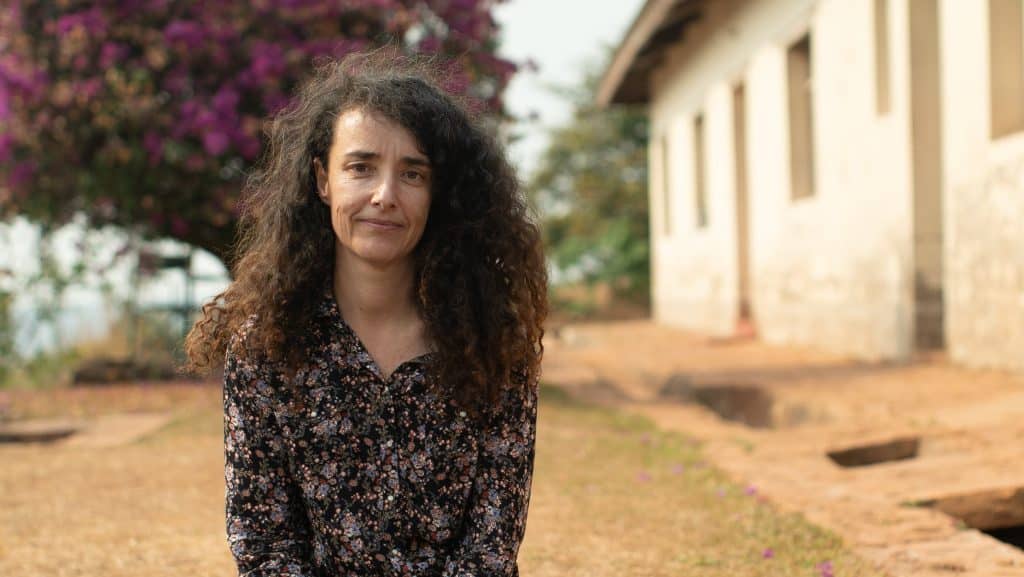Zambian-born conservationist, Christine (Tina) Lain, has one of the toughest jobs in conservation.
As one of only a few women at the head of a national park in Central Africa, she commands more than 200 rangers in the remote and dangerous Upemba National Park (UNP) in the Democratic Republic of Congo.
Tina arrived in Upemba in 2016 after more than a decade working in the Congo – first in peace and emergency aid – and then with the Dutch Committee of IUCN, together with civil society organizations in and around Virunga National Park and the Great Lakes.
Despite being a woman and having no military background, she quickly won the hearts and minds of the rangers who risk their lives every day to protect Upemba’s wildlife. This includes keeping a watchful eye on the last savanna elephant populations of the DRC – estimated to be around just 200 individuals.
Says Tina, “We started in Upemba from scratch, we had to regain control of everything not only of the landscape but also of the minds and hearts of our rangers. We did that step by step.”
For many years Upemba, the second oldest park in the DRC – some 13,000km2 in size – was forgotten and abandoned to rebel groups, poachers and illegal mining. In February 2017, Elephant Crisis Fund grantee – Forgotten Parks Foundation (FPF) – signed a public, private partnership agreement with the Congolese government to rehabilitate and manage Upemba national park.
Thanks to that partnership, Upemba is slowly recovering. However, pockets of armed Mai Mai rebels still rule parts of the park and there is limited road access, transport, communication, and law enforcement.
In fact, the rangers under Tina’s command are sometimes forced to walk for days to carry out their duties, facing repeated and deadly attacks from rebels on the way. In the past two decades, more than 16 Upemba rangers and staff have been murdered by the Mai Mai who poach elephants for ivory.
Says Tina – “Because we are still lacking the equipment and means to open inside tracks within the park for our movement, we must travel the outside roads which means that our rangers are immediately spotted by Mai Mai collaborators, and it makes it very hard not to be attacked as information is leaking; and our presence is known.”
Despite these challenges, Tina and Forgotten Parks Foundation remain steadfast in their mission to transform Upemba into one of the greatest parks of Africa and protect the wildlife that live within. And the Elephant Crisis Fund is doing all it can to help them realise this vision.
As part of its support, the ECF, in close collaboration with technical support from Virunga National Park, recently funded the purchase of a Bat Hawk plane (plus fuel for one-year, spare parts, permits, insurance, pilot’s salary, and the construction of a new hangar) to allow easier access to check up on Upemba’s elephants and for surveillance. In 2022, the ECF filled an important funding gap in between programs that enabled Forgotten Parks Foundation to sustain critical operations in the park.
Says Tina. “Without the support of ECF, we wouldn’t be talking right now. The park would have not been able to survive. The situation on the ground would be dramatic. Rangers wouldn’t be able to go on patrols; the park would not be able to address human-elephant conflict which could also lead to the killing of elephants for retaliation. The landscape would suffer and there would be an increase in poaching.”
Tina says the aerial support will also be a real game changer for Upemba National Park. “The Bat Hawk will help us follow and monitor our elephants as well as give aerial support to our patrols; increasing safety for our rangers.”
It’s clear that keeping Upemba’s rangers safe and ensuring a future for the last savanna elephants in the DRC, is a key priority for Tina. But, she says, it takes more than just basic field knowledge and specific training. Creating a sense of belonging is key in keeping the rangers safe from other threats such as manipulation and corruption. And that, says Tina, means being united as a team – whether you’re male or female.
“Being a ranger in Upemba and DRC is not just about protecting species, habitats, people and ecosystems, it’s also fighting against corruption, impunity, illegal practices, political pressure and manipulation…. we need to be united between us: we have a shared vision, we support each other, we are a team.”



